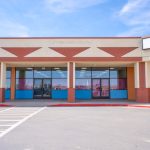
Covid exhausts the body, one survivor says
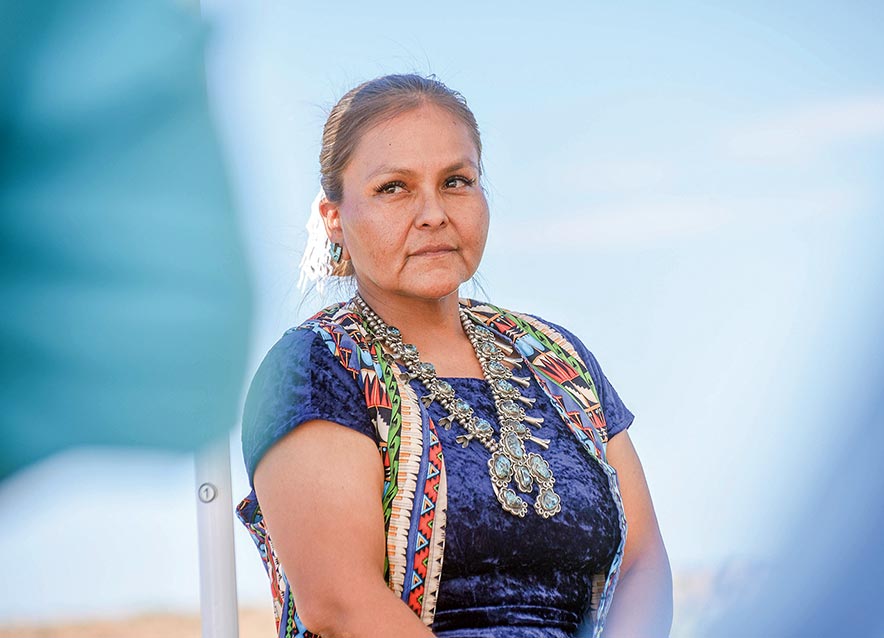
Navajo Times | Krista Allen
Angelita Nez waits for guests to be seated during the Wildcat Peak II electrification celebration outside her mother’s home in Tódích’íi’nii Hóteel in Tsé Łichíí Dah ‘Azką́ni, Ariz., on Friday morning.
TSÉBIGHÁHOODZÁNÍ
Infected with COVID-19 pneumonia in a Banner Health ICU bed in Chandler, she affirmed that she was going home to her family.
When Angelita Nez contracted the lung infection caused by SARS CoV-2, the virus that causes COVID-19, she tried to recover at home.
She knew that rest, fluids and fever reducers such as Tylenol were essential. But that wasn’t enough.
She said getting infected with COVID-19 was a frightening, isolating experience.
She was infected with the original strain of the virus on her birthday, March 28, 2020, during the first wave of the pandemic.
“As much as I fought it, it took me down,” Nez said. “I ended up in the ER in Page, Arizona, where I was flown out and ended up in Chandler.
“I had the Covid pneumonia,” she said. “I couldn’t breathe. I was sick. Covid’s a whole different animal. I think about it, I experienced it. It was my breathing. I couldn’t breathe no matter what.”
The standard advice was and is necessary, but Nez said at times it felt inadequate to the illness’s severity.
“I’d walk around the house, the sheep corral, trying to take a deep breath, trying to think that it was OK,” Nez explained. “I tried everything – burning sage, taking hot baths, and things like that just to clear my lungs so I could breathe. But it came to a point where I couldn’t.”
The shortness of breath worsened and her mom, Elsie Chee, took the initiative to take her daughter to the ER in Dá’deestł’in Hótsaa.
“I was in and out of (consciousness) the whole time,” she said. “I would go out, maybe a blackout moment, then I’d come back.”
The medical team at Page Hospital immediately knew Nez was critically ill and why she had trouble breathing.
A physician visited with her in the ER and told her she would be tested and warned her she would test positive for Covid and that she would be flown out to Chandler for treatment.
“Back then, there were still a lot of unanswered questions on how Covid affects your body and what it would do to you,” Nez said, “(and) how to cure it because that was the very first wave of the Covid virus.
“When I got to Chandler, the doctor there had me on antibiotics for pneumonia,” she explained.
Moments before she blacked out again, Nez received a text message from her four sons. The text message read, “Mom, don’t be silly, come home.”
That text message resonated with her and she could hear it as she was in the ICU bed.
“I kept telling myself, ‘I’m gonna go home. I’m not gonna get myself into this, I’m gonna go home. I did it, fought it, and it hurts too,” Nez recalled.
“In my experience, when I think about this, a lot of people who left us didn’t just fight Covid,” she said, “they fought pain because it’s very painful.
“It hurts to breathe, and your chest feels like it’s on fire. They fought anxiety because if you allow anxiety to overcome your body, you need help with that,” she said.
“I felt that – I felt anxiety coming on,” she said. “When you have anxiety, your breathing accelerates, and once it overtakes your body, it’s probably gonna win. I fought that anxiety.”
Nez kept affirming she’s going home to her family in Tsé Dah ‘Azką́ni, Arizona.
She returned home to Tódích’íi’nii Hóteel right before Memorial Day weekend.
What is Covid pneumonia?
Severe COVID-19 pneumonia happens in about 15% of patients and is associated with high mortality, according to the New England Journal of Medicine.
According to the Cleveland Clinic, one can get pneumonia as a complication of being sick with COVID-19.
As the immune system attacks the infection in the lungs, they get inflamed and filled with fluid, making breathing difficult.
“During that process, the doctors asked me if they could use my symptoms and what I was going through as a test for them so they could understand Covid,” Nez said.
“So, they withdrew my blood and studied it,” she said.
“Another thing they (physicians) were surprised with was my lungs,” she said. “My lungs were filled with pneumonia. So, by the time I was ready to come home, the X-rays showed I had very little damage that was left on my lungs.
“They were surprised the scarring on my lungs were minimal (compared to) someone with (severe) pneumonia,” she said.
Her medical team told her she’d have difficulty breathing and she might be unable to do things normally.
“And they were right,” Nez said. “It really takes a lot out from your health. So, in order to rebuild my strength, I started hiking trails in the middle of the heat. I’d hike every day, and I pushed myself every day.
“I also started lifting weights,” she said. “I was home probably for another two weeks after I (was discharged), and then I came home to my mom’s house.
Training began at Chee’s homestead, where she hiked the hills, attended to the family livestock and rode horses.
“I really pushed myself physically and mentally to get well,” Nez said, “and I understand Covid. Covid isn’t just a sickness that affects your lungs – it affects your body in different ways,” she said. “And those of us who’ve had it, it affects us in one way or another.
“It’s a really bad virus, and I’m really fortunate to be able to tell what I went through,” she added, “but I also understand when somebody tells me they have permanent damage from Covid.
“This is something that employers should consider in our health plans, and we should be insured for things that happen because of Covid,” she said.
As a public service, the Navajo Times is making all coverage of the coronavirus pandemic fully available on its website. Please support the Times by subscribing.
How to protect yourself and others.
Why masks work. Which masks are best.
Resources for coronavirus assistance


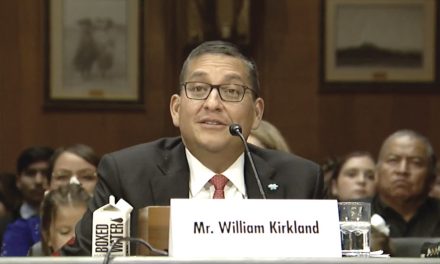
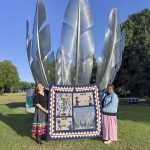
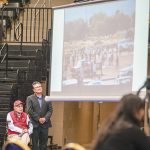



 Highway 264,
Highway 264, I-40, WB @ Winslow
I-40, WB @ Winslow